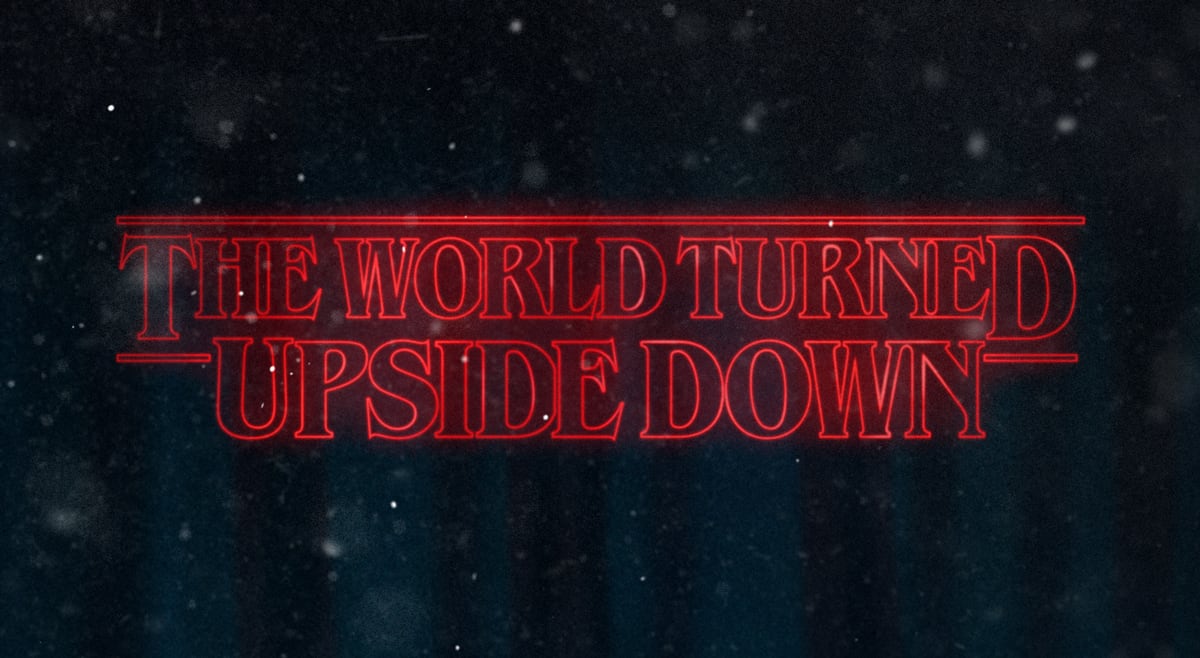
The very first episode of Stranger Things is entitled, “The Vanishing of Will Byers.” It’s a perfect beginning. The cryptic circumstances of Will’s abduction reveal just enough to let us know that something otherworldly is its cause. We’ll learn that Will is “here but not here,” trapped in a parallel universe, an unnatural world that is ultimately lethal to all who cross over into it. Three realizations flash through our minds and hearts in the wake of the tragic event: the pain of loss, the threat of death, and the impossibility of changing the situation. We’ll consider all of those disturbing intuitions in the ensuing chapters, but it is the first that will capture our attention here, at the outset.
Just as important as Will’s vanishing, we’re immediately introduced to the tight-knit group of boys that will propel the series: Will Byers, Dustin Henderson, Mike Wheeler, and Lucas Sinclair. The fact that the “Party” (as they refer to themselves) is playing Dungeons and Dragons (D&D) in the opening scene not only portends the Demogorgon—a dreaded, lethal enemy that, unknown to them, has entered their reality—but anticipates what we’ll learn of their commitment to each other.
Brokenness is at the heart of Stranger Things. Each member of the Party—really, every major character in the show—has a battle to wage against loneliness, lack of acceptance, fear of being unwanted, or tragic personal loss that makes them who they are.
Created to belong
The Bible teaches that alienation from the God who made us and loved us is a tragic anomaly in God’s intended world. Will Byers found himself in an anti-world, a bizarre, abnormal place foreign to human inclusion and experience. We’re no different. Estrangement from our Father and his home is an unnatural condition that’s out of step with what God wanted from the very beginning.
Think about how the Bible’s story begins. When God created humankind, he was acting intentionally. We know that God wasn’t trying to fill some deficiency in himself. His perfection rules that out (Ps 18:30; Matt 5:48). God wanted us to exist in order to enjoy us and to have us enjoy him in return.
Because the Bible teaches that human life is God’s creation, it’s no surprise that God is portrayed as “Father” and all human beings as his “children” (Acts 17:26–29). Adam was God’s “son” (Luke 3:38). The people of Israel (Exod 4:22) and Israel’s king (Psalm 2:7) are described as God’s sons. Those who embrace the gospel are the children of God (John 1:12).
Think about that vocabulary. What’s the context for words like “Father” and “children?” Family. While this observation might seem elementary, the beginning of this thread tends to be hidden in plain sight for many Bible readers. The Bible tells us that before God created humanity he already had children. The Bible calls them “sons of God.” We call them angels. They were God’s supernatural family. They were here before humans. They “shouted for joy” as they watched God lay the foundations of the earth (Job 38:4–7).
Healing what’s broken
The Bible’s story opens with family. God desired to be the Father of both his families and have them all be with him in his new, wonderful, terrestrial home. But the desire of God’s heart didn’t last long. It was soon hopelessly broken by deception and rebellion. Death became the new, overriding reality.
This crushing loss and hopeless future is the entry point for the gospel. It may sound odd, but many Christians have lost a sense of what it means to be without Christ. Many churches present the gospel in such a way that the answer to why we even need it is forgotten. We need the gospel because we are estranged from God. As Adam and Eve were driven from Eden (Gen 3:22–24), we have been expelled from God’s home. We are spiritual orphans—we’re under the curse of the fall and our own sin (Rom 5:12). In Paul’s words, we “[have] no hope and [are] without God in the world” (Eph 2:12). We are “alienated from the life of God” (Eph 4:18). It’s an ugly picture, but the New Testament doesn’t leave us there. We were not only originally created to be with God, but God never abandoned that goal.
Stranger Things communicates the pain of loss and estrangement in visceral, moving ways. The loss of Will draws us into the pain of those who love him. Their loss triggers the deep yearning inside of us all to have things set right. All of us want to know who we are, why we’re here, and where we truly belong. But the search for Will has just begun. It’s heartbreaking to watch the characters drawn toward the terrible but obvious realization that their efforts are pointless. We must awaken to the fact that the heart of God aches for all those who still need to embrace the gospel in the same way. Without the gospel, God knows they’re as lost as Will Byers, cut off from him in our own Upside Down.
This post is adapted from The World Turned Upside Down: Finding the Gospel in Stranger Things by Michael S. Heiser (Lexham Press, 2019).






